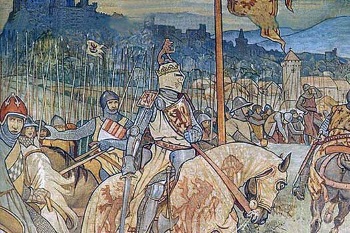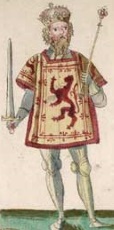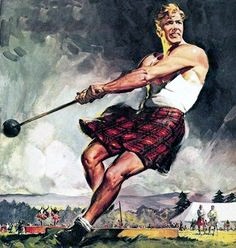Scottish Highland Games continue a proud historical tradition
In many countries throughout the world, wherever there are Scottish connections, Highland Games take place. There are about 100 Highland Games in Scotland between May and September every year. Most recently, on 28th July, a successful St Andrews Highland Games was held. This was the Scottish town of St Andrews (Scottish Gaelic: Cill Rìmhinn) 35th games, but the history of such events in Scotland go back much further. The story of the Scottish Highland Games date back many centuries.
The first historical reference to the type of events held at Highland Games in Scotland was made during the time of King Malcolm III (Scottish Gaelic: Máel Coluim; c. 1031 – 13 November 1093) when he summoned men to race up Craig Choinnich overlooking Braemar with the aim of finding the fastest runner in Scotland to be his royal messenger. They were also thought to have originally been events where the strongest and bravest soldiers in Scotland would be tested. These gatherings were not only about trials of strength. Musicians and dancers were encouraged to reveal their skill and talents and so be a great credit to the clan that they represented. The Ceres Games in Fife, which began in 1314, are thought to be the oldest, continuous Highland Games in Scotland. They proudly state that the Ceres Highland Games are ‘held in honour of the brave men of Ceres who fought at Bannockburn.’ The Battle of Bannockburn (Scottish Gaelic: Blàr Allt nam Bànag) on 24 June 1314 was a major Scottish victory against the English in the First War of Scottish Independence.
The history of the Highland Games has not always been a smooth one. The development of this showcase of Highland culture was severely disrupted following Scottish defeat at the Battle of Culloden (Scottish Gaelic: Blàr Chùil Lodair). The 1746 Proscription Acts were passed in a deliberate attempt by the English to dismantle Scottish Highland life, culture, society and destroy the clan system. These laws were finally repealed on 1 July 1782. The Highland Games really only started to develop again after the 18th and 19th Highland Clearances, a brutal process of evictions that attacked the Gaelic culture of the Highlands.
Many of the 2019 season of Games in Scotland have already happened. However, listed below are a number of those still to take place:
July 2019
31st July, 2019
August 2019
2nd August, 2019
3rd August, 2019
3rd August, 2019
Aberlour Strathspey Highland Games
3rd August, 2019
Bridge of Allan Highland Games
4th August, 2019
7th August, 2019
7th August, 2019
8th August, 2019
9th August 2019, Lochinver
Atholl & Breadalbane Highland Games
9th – 10th August 2019, Aberfeldy
10th August 2019, Nethy Bridge
North Berwick International Highland Games
10th August, 2019
11th August, 2019
17th August, 2019
17th August, 2019
18th August, 2019
22nd August, 2019
23rd August, 2019
24th August 2019, Rothesay
24th August, 2019
Strathardle Highland Gathering
24th August, 2019
24th August, 2019
29th – 31st August 2019, Dunoon
September 2019
7th September, 2019
8th September, 2019
14th September, 2019
21st September, 2019
Images: Artistic impression of Battle of Bannockburn. King Malcolm III. Highland Games competitor.








